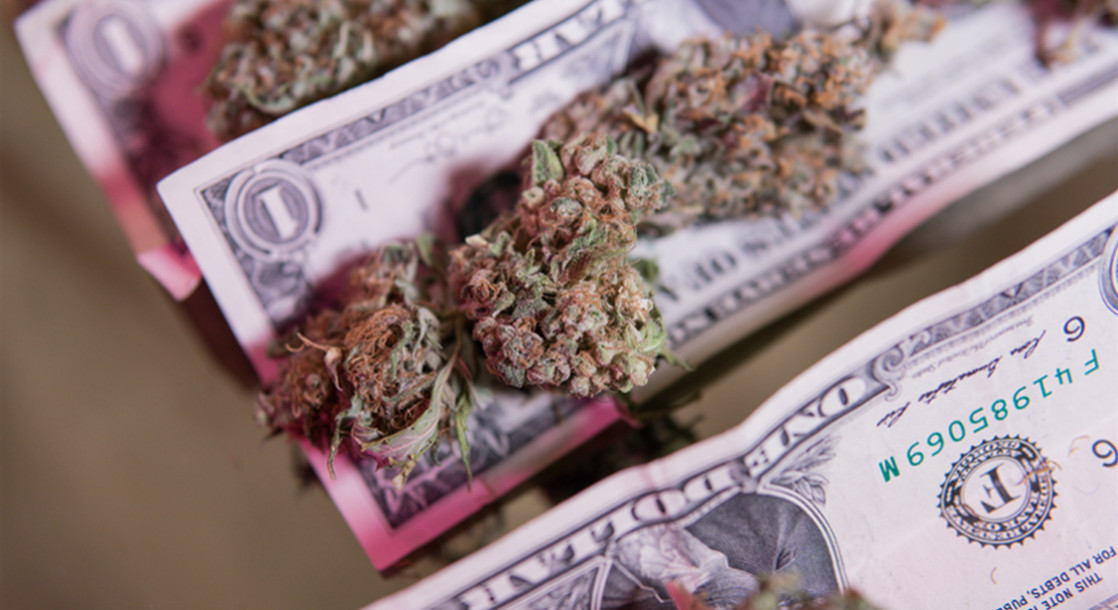Photo via iStock/ VasilevKirill
California officials expected to see their coffers swell with marijuana sales tax revenue after legalizing recreational sales this January, but preliminary estimates are falling far short of the massive revenue that was expected. Analysts for the state predicted that they could see as much as $175 million in retail marijuana taxes by June, but the state Legislative Analyst's Office is now estimating that pot sales only brought in $34 million by March, making it highly unlikely that the state will see their expected bounty materialize.
State economist Seth Kerstein said that he expects that tax collections will rise significantly before the summer is out, but agrees that it’s unlikely that the $175 million projection will be met. The state is currently levying a 15% tax on all cannabis purchases, whether recreational or medical, as well as additional taxes on cultivators. Buyers must also pony up for local taxes as well as the standard state sales tax, bringing total taxes close to 50% in some areas.
These taxes increase the effective price of legal weed, which is in turn driving some buyers to return to the state's thriving black market, where a lack of taxes and regulations keeps costs down for users. Some legislators have argued that the state should temporarily cut its canna-tax rates in order to make legal weed more affordable and pull consumers back to the legal market.
Proposition 64 — the ballot initiative which legalized adult-use cannabis in California in 2016 — also allowed local governments to “opt out” of allowing legal weed businesses in their jurisdictions, and a large number of towns and cities have decided to do just that. As a result, many residents find themselves several hours' drive away from a legal pot store; an inconvenience that is also inspiring buyers to return to illicit dealers. Even in towns and cities that have embraced legal cannabis, local governments and the state have been slow to award business licenses, delaying the opening of many new pot enterprises.
"The excise tax revenue numbers announced today are abysmally below what Californians were promised when they voted to legalize recreational cannabis," state Assemblyman Evan Low said to the Associated Press. "The state must take all possible action to defeat the black market and support good actors, or else our newly established regulatory scheme will surely fail."
Practically every advocate for legal marijuana across the country has argued that legalization will bring a windfall of tax revenue to their state, but a new report by Moody's Investors Service casts some doubt on these claims. Moody’s analysis focuses primarily on Colorado and Washington, the first two states to legalize adult-use cannabis. Both states saw a rapid increase in tax revenue after legalizing marijuana, but the total amount collected only represents a small portion of each state’s total earnings from taxes.
The report contends that tax revenue from pot sales only represented 2% of Colorado's total general fund revenues last year, and only 1.2% of Washington's general fund over the past two years, while also noting that around half of Colorado's pot taxes are directed into cannabis law enforcement, education, and drug treatment programs, leaving only 5% left for the general fund.
On top of this, Moody's predicts that the growth of the cannabis industry “is likely to slow,” according to the Chicago Sun Times. “Markets in the states that legalized early are already showing signs of stabilizing,” the report states. “Also, as more states legalize recreational marijuana, states will face increased competition from their neighbors.”
In Illinois, some politicians are using this analysis to cast shade on pro-legalization opponents’ claims that legal cannabis will bring needed tax revenue to the state. One leading candidate, J.B. Pritzker, refuted these claims, adding that legalization can also help solve a number of social issues. “Legalizing marijuana will not just bring tax revenue to the state, but it will help reform a broken criminal justice system that has disproportionately harmed communities of color for far too long,” said Pritzker campaign spokesperson Galia Slayen. “J.B. knows we can legalize marijuana in a safe way that will benefit communities across Illinois and he is ready to do that as governor.”











